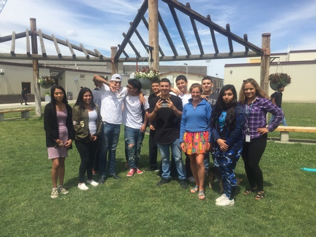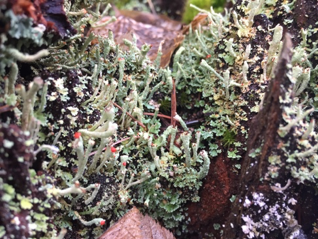
Encouraging students to feel alive may change how people ask questions and make discoveries
The schism between humans and the so-called "external" environment melds when people partner with nature. Science pertains to our personal living experiments that exceed reading textbooks. Young students who "major in a field" such as geology, biology, chemistry, or medicine, for example, perceive these to be separate disciplines.

Stepping out of our offices, lab benches, and classrooms can foster compassion and curiosity for others who sense they have a destination in mind, but along the way, are permitted to be full of uncertainty. Their vital signs and physiology – pulses, tissue branching morphogenesis, and emotions – are not to be dismissed. Their interior realities have somehow developed from embryonic cells to process stimuli and sense of their sentience. Rather than asking people to enter a major or expertise in a field, what if scientists first learn to sense their human aliveness in the process of revealing data will make nature thrive?
Nature is full of uncertainty and unpredictability. In the face of mystery, people can be quick to apply their false certainty to resolve what seems to need helping and fixing. Imagine if scientists cultivated a culture of curiosity and compassion as a practice for younger trainees. It may yield biological clues to how we can care for our own emotional and social well-being in doing the work of science, reconciliation and collective human fulfillment.

Our lives revolve around social relationships, and if people allow themselves and others to connect in our shared uncertainty, humans may recognize the courage we inherently have in the face of uncertainty and in crisis.
A misunderstanding is how science is thought to be a discipline of certainty. On the one hand, science presents time-tested, reliable methods and may yield reproducible data, yet it evokes unforeseen emotions and subsequent questions. Science is about adaptation, curiosity, and most certainly, an experience exploring the territory of uncertainty. Humans who form hypotheses and conduct experiments are uncertain, holding paradox and contradictions.

Uncertainty moves us to ask questions about our place in the universe. Our interrelated lives search for innovations and belonging. Some scientists and physicians are trained to embody self-sacrifice and exhaustion to seem earnest and diligent. Young researchers are hard-pressed to act knowingly to be "leaders" before realizing their own vibrant lives already contribute value in a constellation of unknowns.
In nature, people can sense wonder for their own evolving bodies, guiding questions, and search for meaning. Nature encourages people to look at themselves, an interconnected stranger, and human emotions as integral to finding answers rather than trivial and separate to the process. Encouraging scientists to play and to distill a set of nature-inspired leadership practices fosters curiosity about how life works.
Science shapes how we understand and interpret our connected experiences and the way we treat people. Inviting people from a young age to listen to the veracity of intuition can inform children to be playful, self-aware, adaptive, and capable of asking for help in every life stage.

A false comport of certainty leads people to feel unsafe, isolated, and disengaged in the biosphere. A student who faces poverty and homelessness faces one truth, while medical students also endure unsustainable stresses of exhaustion and a starvation to know their focus will expand our human awareness. A magnetic field, human nervous system, and gravitational force change human relationships at the molecular level. Living matter roils hot and cold at the interior core of humans and Earth, both spin and form intentional relationships with beings across forms and scales to sense we are alive and helping.
By: Corinne Gardner
I am Corinne Gardner, a facilitator and an author who choreographs collaborative, nature-immersive play workshops for humans. I am passionate about the evolution and emergence of humans and organisms across scales. I cover seemingly disparate science and nature topics, including human potential, adaptive strategies, women’s gynecology, and forest ecology. Why? Our life experiences are interconnected! Being aware that our needs, humour and emotions are not superfluous or trivial, but rather intrinsically human, makes us more capable of experiencing pain and pleasure – we must befriend ourselves. You can see my work at https://corinnegardner.home.blog.
